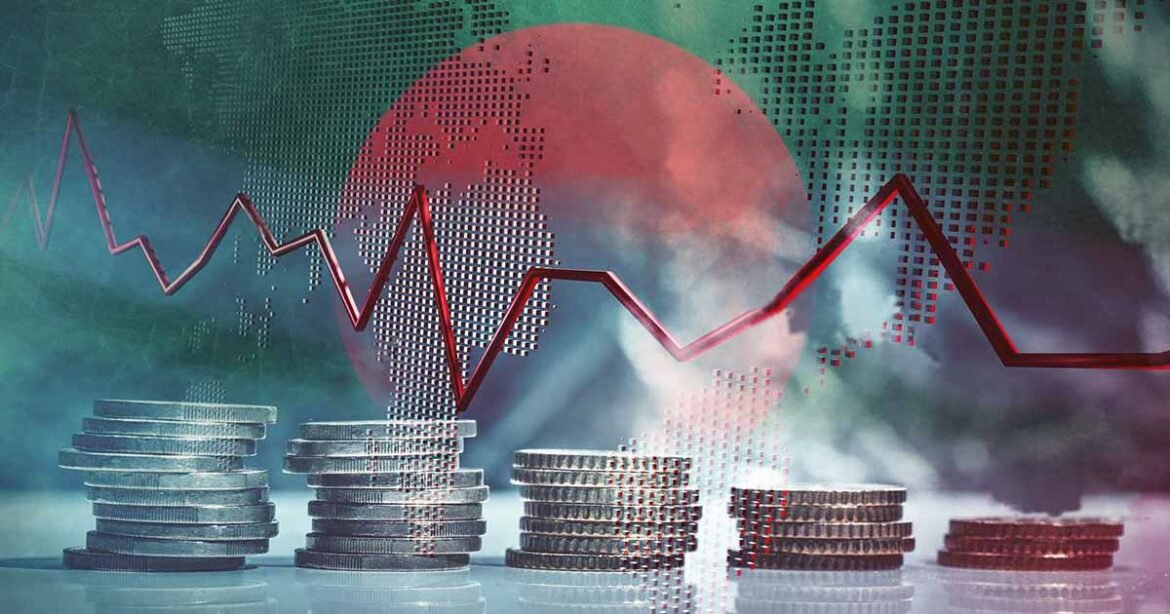The Bangladesh Bureau of Statistics (BBS) has recently released official figures showing that the rate of inflation in January has decreased for the fifth month in a row. This drop in inflation has been attributed to a decline in food prices and global trends. Based on the Consumer Price Index (CPI), the inflation rate in January stood at 8.57%, down from 8.71% in December 2022, with a decrease of 14 basis points.
Why is the consumer price index used to compute inflation?
Among many indices, economists mostly use two main indices to measure inflation; the Consumer Price Index (CPI) and the Producer Price Index (PPI). The CPI is used to measure the variations in the price level of goods and services from the consumer’s perspective and is an important tool for analysing the cost of living in a country or in a specific area. On the other hand, the Producer Price Index (PPI) is used broadly to forecast the change in selling price over time gained by the producers of a certain place for their products. Analysts use this price index to gain insight into wholesale inflation, too.
You Can Also Read: EXPLORING HEALTH THROUGH THE LENS OF DEVELOPMENT
The CPI is a common source for measuring inflation in Bangladesh due to its ability to provide an immediate measure of variations in the cost of living. It uses a basket of goods and services consumed by households to forecast changes in prices. The CPI provides policymakers, economists, officials, and the public with an understanding of the trends in the economy and the impact of inflation on consumers. This data is used to inform monetary and fiscal decisions to stabilize the economy and foster growth.
More about the fall in Bangladesh inflation
According to the published data, the inflation rate in Bangladesh in August 2022 was the highest in the previous ten years, at 9.52% overall. From then on, the percentage of inflation in January is the lowest.
Giving most of the credit to the supply-side advancement, the state minister for planning, Prof Shamsul Alam said, “With keeping balance with the improvement in the production sector, the supply of products has gone up significantly, for which the overall prices are in decline.”
But a point to be noted here that the minister didn’t forget to admit the possibility of the impact of the rise of gas and electricity prices in the upcoming inflation computations. The government increased the electricity price by 5% at the retail level on January 31, the second hike in 19 days. Electricity retail prices have also been raised by 14.5% for industries, power plants, and commercial sites. According to BBS, the inflation rate for the January-February period average 7.92%, but the government is aiming to bring this rate down to 7.5% at the end of this fiscal year.
Is inflation rate declining only in Bangladesh?
According to prominent economist and IMF director of research Pierre-Olivier Gourinchas, “with the improvement of global financial status, the pressure on inflation started to abate. Trends are indicating that global inflation will fall this year and in future years but will still remain above pre-Covid levels.”
Adding to his speech, Gourinchas said, “The inflation rate could persist and become stubbornly high because of regular tightness in the labour market and growing pressure on wages, for which tight monetary policy is required.”
Reason behind slowdown in global inflation
The slowdown in economic growth has reduced global demand for goods and services, resulting in a reduction in pricing pressure. Technology is also helping companies produce at a lower cost, and well-thought-out monetary policies by central banks are helping to fix the rate of inflation. Central banks have kept the rate of interest high and explored the idea of quantitative easing to foster economic growth and support employment.
Can Bangladesh further lower its inflation rate this year?
Bangladesh has the option of lowering its inflation rate in 2023, but this depends on several economic and non-economic factors, including government policies, prices, monetary policy, economic growth, and political stability. The Bangladesh Bank can manage inflation by using monetary policies to control the money supply, and it can increase interest rates to discourage borrowing and decrease demand for goods and services, leading to lower inflation. Additionally, higher interest rates increase the currency’s value, making it more attractive to foreign investors and making imports cheaper, which can also lead to a reduction in inflation.
Bangladesh’s heavy dependence on fuel imports means that any change in international fuel prices could have a significant impact on inflation. Moreover, increasing food prices could create serious issues for the population. To reduce inflation to pre-pandemic levels, Bangladesh needs to focus on these sectors. To bring down inflation in 2023, the government should adopt a multi-pronged approach, including increasing productivity, food supply, infrastructural development, promoting economic growth, and implementing sound monetary policies. Strong policies for reducing corruption and improving governance quality are also essential to reduce inflation and attract foreign investment. Additionally, a well-planned approach to reducing the budget deficit and attracting foreign investment can prove beneficial.


